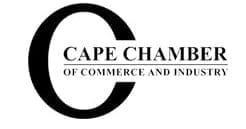South Africa’s toll road tariffs should be coming down and not being increased, says the Cape Chamber Commerce and Industry.
The Chamber was responding to an announcement by the South African National Roads Agency (Sanral) that all toll fees, except the improved Gauteng freeways, are to be increased by 5.8 percent. Janine Myburgh, President of the Chamber says, “The whole idea behind toll roads was to raise money to pay for the massive capital costs for new projects but these costs actually decrease as we pay off the old loans.” “It is like the bond on your house. When you start you spend a quarter of your salary on bond repayments every month but after a dozen years or so it becomes much easier as your salary goes up and the bond begins to look a lot smaller in relation to current house prices.” She pointed out that the Hugenot Tunnel was 26 years old and could well have been paid for by now. Myburgh adds, “If there is an outstanding bond it must be very small so I really don’t understand why we have to pay more.”Operation and maintenance costs had increased but there had been a massive increase in traffic volumes, especially the heavy trucks which pay high toll fees. A similar situation existed with other old toll roads like the one through Nature’s Valley in the Eastern Cape.
Peter Hugo, Chairman of the Chamber’s Transport Portfolio Committee, said it was normal practice in developed countries to scrap toll fees once the capital cost of the road had been recovered. “They use a system called BOTS where the contractor builds the road, operates it for 20 or so years, depending on the contract, and then toll fees fall away and the road is transferred to the public authorities.” He said if there was to be an increase in toll fees it should be justified. Hugo concludes, “We need to look at the income from toll fees and then at the expenses and the loan repayments. To simply use the inflation rate to justify increases is lazy and irrational and to continue charging after the project has been paid for means toll fees are now just another form of tax. There are some good arguments for the ‘user pays’ system but in this case the user has paid.”






